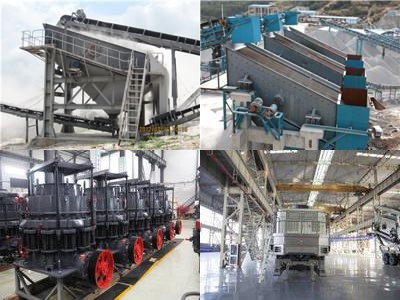Don't miss our holiday offer - 30% OFF!
What Are The Key Differences Between Jaw And Cone Crushers?

Understanding Jaw and Cone Crushers
Jaw and cone crushers are pivotal pieces of machinery in the crushing and screening industry, essential for breaking down large rocks into smaller, more manageable sizes. The jaw crusher, characterized by its large feed opening and forceful crushing action, is primarily used for primary crushing applications. Cone crushers, on the other hand, are renowned for their efficiency in secondary and tertiary crushing stages, featuring a cone-shaped crushing chamber and a rotating mantle.
At Zenith, we offer a range of jaw and cone crushers designed to meet various crushing needs. Our Jaw Crusher Series includes models such as the PEW series and the C6X series, which boast high crushing efficiency and robust construction, ideal for demanding mining and quarrying applications. For cone crushers, our HPT Cone Crusher stands out for its advanced hydraulic system, ensuring reliable performance even in the toughest conditions. Whether it’s for primary crushing or secondary crushing, Zenith’s crushers deliver exceptional results.
Functionality and Design Variations
While both jaw and cone crushers serve the same purpose of reducing large rocks into smaller sizes, they differ in terms of functionality and design. Jaw crushers operate by compressing rock between two surfaces, whereas cone crushers utilize a rotating mantle within a concave bowl to exert pressure on the material. This fundamental difference in design leads to variations in their applications and performance characteristics.
At Zenith, our jaw crushers feature adjustable settings to control the size of the crushed material, providing versatility for different crushing requirements. Meanwhile, our cone crushers are equipped with features such as automatic overload protection and hydraulic adjustment for quick and easy setting changes, ensuring optimal performance and minimal downtime.
Performance Comparison: Strengths and Weaknesses
When comparing jaw and cone crushers, it’s essential to consider their respective strengths and weaknesses to determine the most suitable option for specific applications. Jaw crushers excel in primary crushing tasks, offering high throughput rates and excellent reliability. However, they may struggle with abrasive materials and are less efficient in producing fine aggregates compared to cone crushers.
On the other hand, cone crushers are adept at producing finely crushed materials and are more suitable for secondary and tertiary crushing applications. They offer better control over the particle shape and size distribution, making them ideal for producing high-quality end products. However, cone crushers typically have higher operating costs and are more complex to maintain compared to jaw crushers.
Conclusion: Selecting the Right Crusher for Your Needs
Choosing between a jaw crusher and a cone crusher ultimately depends on the specific requirements of your crushing operation. At Zenith, we understand the importance of selecting the right equipment to maximize productivity and minimize operational costs. Whether you prioritize high throughput rates, precise product quality, or ease of maintenance, our range of jaw and cone crushers caters to diverse crushing needs.
Consider factors such as feed size, production capacity, and the desired end product when making your decision. Consult with our experts at Zenith to explore our comprehensive range of crushers and find the perfect solution for your crushing requirements.
Explore Zenith’s extensive lineup of crushers, mills, and other heavy industrial equipment to enhance the efficiency and productivity of your operations. With our commitment to quality, reliability, and innovation, Zenith remains your trusted partner in the mining and construction industry.